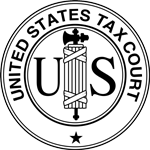- Free Consultation: (772) 418-0949 Tap Here to Call Us
Dealing with an IRS Tax Lien on Jointly Held Property

IRS issues can compound when dealing with jointly owned property which often occurs with estates, marriage, and family ownership.
When the IRS initiates a federal tax lien against a delinquent taxpayer, the lien covers all rights to current and future properties the delinquent taxpayer has or may have, even if the ownership rights to property are only proportional. For example, in the case of a jointly held property, the IRS can attach lien rights to the delinquent taxpayer’s portion, potentially causing tremendous difficulty to the non-delinquent taxpayer. Even though the IRS’s lien does not encumber the innocent party’s share of the jointly held property; however, the lien becomes a shared burden since either party may be inhibited from borrowing against or selling the lien property. Most financial lenders are highly hesitant to issue credit while in a subordinate creditor position to the IRS.
What Happens if the IRS Forecloses on Jointly Held Property?
Even though the lien is filed against the only tax debtor party of the joint parties, the lien attaches to the debtor’s interest and thus the entire property, which can be sold pursuant to collection action such as a judicial sale under 26 U.S.Code § 7403. If an actual foreclosure of the lien property were to occur, the innocent party non-tax owing party might be entitled to their share of the proceeds.
How Does IRS Address the Death of a Joint Property Owner of the Tax Lien Property?
If one of the joint tenants, whom the tax lien has been filed against, passes away before the other joint tenants, the tax lien will cease to attach to the property held in joint tenancy. When the tax lien individual survives all other joint tenants, the tax lien will attach to the entire property. It is essential to check your applicable state law since there are exceptions to this rule. If one faces this situation getting professional tax advice is needed to ensure all options are available.
How Long Can the IRS Enforce a Tax Lien?
Generally, the IRS can only enforce a tax lien until the Collection Statutute Expiration Date, usually ten years from the tax assessment date. When a tax debt reaches the collection statutory time frame, it expires, as does the associated IRS lien. However, some circumstances may allow the IRS to extend or suspend the ten-year collection period. Under IRC § 6502, IRS tax liens can extend beyond ten years if:
- The Collection Statute of Limitations is extended in connection with the execution of an installment agreement for payment of the tax debt;
- The debtor taxpayer applies for an Offer in Compromise, tolling collection statute while the offer is being considered and could also contain an agreement to extend the statute of limitations for enforcement of a federal tax lien; or
- Within the required refiling period, the IRS refiles the lien.
Are There any Preventative Measures for Dealing with Joint Property Tax Lien Issues?
Transparency is Key. Often individuals unwittingly get married without knowing of the other’s IRS tax issues, only to find the hard way, especially if a jointly owned property is purchased. As a preventative measure, each party should disclose as much personal financial information as possible before marriage. Doing so will allow proper protection planning and bring the tax issue to the surface for quicker resolution.
Awareness of any intended beneficiary’s tax situation could prevent problems with estate planning. For example, suppose a beneficiary has tax debts with the IRS and is to share a property with others. In that case, the other beneficiaries may have to deal with the tax situation as previously discussed. Seeking professional help from a tax attorney may be ideal for planning and for tax resolution of the issue at hand.
What Are the Options When Dealing With Tax Liens on the Jointly Held Property?
There are several ways to alleviate tax liens. Outside of the complete payoff of tax debt, there may be alternative methods to remove the tax lien, depending upon the situation present.
For example, it may be possible to deal with the IRS to receive a lesser amount than owed on the lien while getting the lien removed. It can happen when one establishes that the tax debtor’s portion of the property is less than the total tax debt.
The IRS may allow for a lien release if it could be shown that the lien property has little or no value.
If the tax debtor has no income, assets, or income, the IRS might agree to a lessor payment amount if all its property lien will yield. A skilled tax attorney can assist with getting the discharge of the IRS tax lien from the property, maybe for under the total amount of tax liability. Addressing the tax lien will prevent foreclosure and protect the property of the non-tax-liable party.
The IRS may be willing to release the jointly owned property and pursue other assets of the tax debtor instead; if it could be established, there is enough value to cover the tax debt.
Finally, a situation may occur where neither the IRS nor the property owner cannot get funds from the property unless the lien is removed, therefore enabling a sale to occur. In this situation, the IRS may approve a fair market value escrow agreement, removing the tax lien for selling the property.
Negotiating with the IRS
For joint property lien issues, the most common type of discharge is through an escrow arrangement; however, each tax lien case is unique and often requires a strategy falling under a specific tax code for a successful outcome. The best approach is to have a tax attorney CPA to help make the correct determination, provide proper compliance guidance, and adequately advocate for the best available outcome.
For more information about IRS Tax Liens, please read the following blogs.
- “Information Regarding Appealing an IRS Federal Tax Lien“
- “Tax Lien Withdrawals“
- “How To Deal With IRS Tax Lien“
Get Help with your Joint Property Tax Lien Issues with Skilled, Trusted Representation at your side!

Do you need help getting out from under an IRS tax lien, whether for your tax debt or from someone else who shares property ownership with you? Are you concerned that the IRS may be preparing to impose a lien or levy your property? Tax Lien Relief Plans can be complicated to set up. Harmon Tax Resolution, LLC can assist by having an experienced, skilled tax attorney CPA to address your tax issue with the IRS, so you won’t have to. For a Free Consultation, Call Today @ 772-418-0949 or complete the online inquiry form so that you can sleep well tonight.
Make the Call Today so that you steer your path tomorrow!












